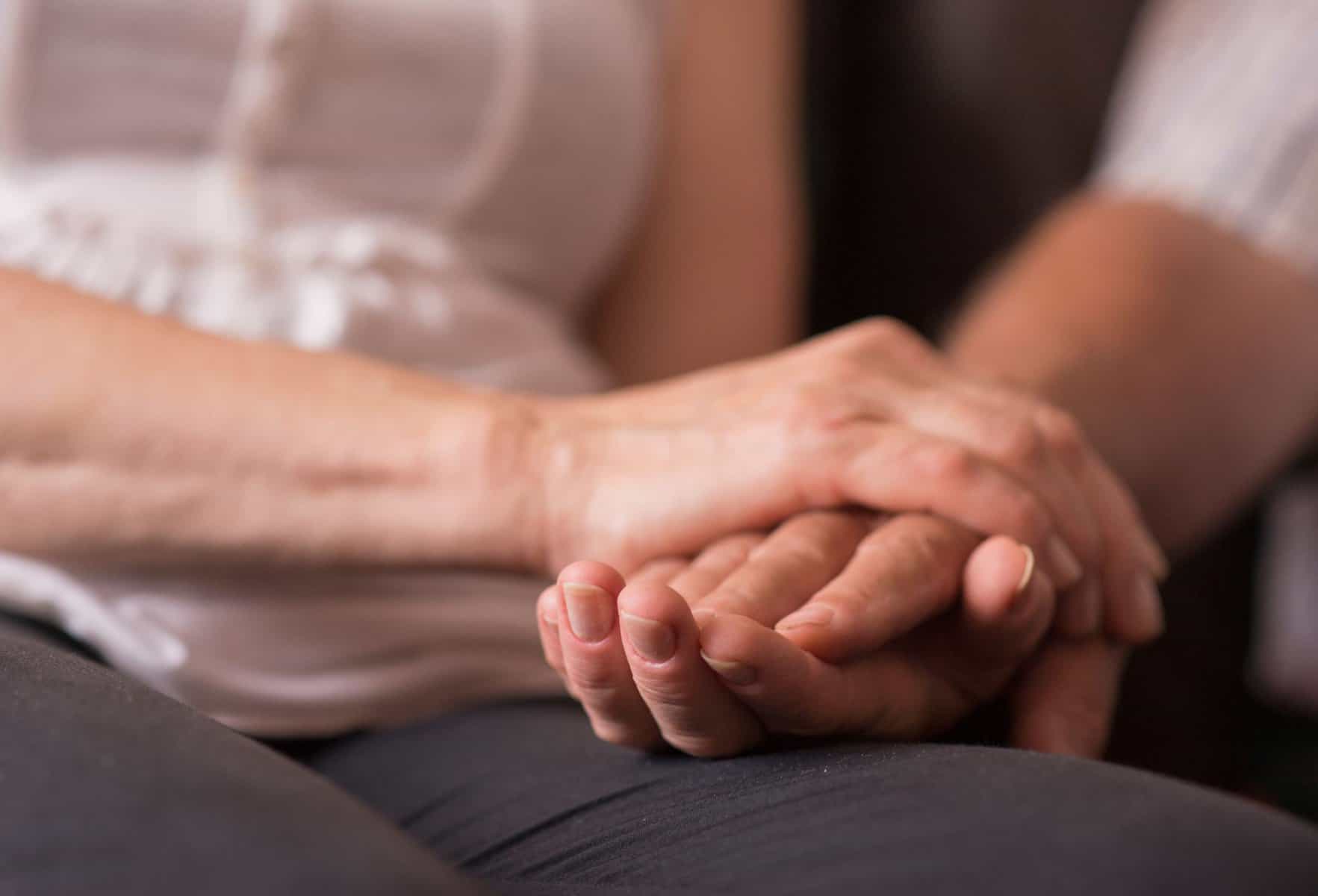
Too often people with eating disorders find it hard to recognize that they have an issue, or they may not reach out for help if they do. They may not see the consequences of their disordered eating, or they may experience a high level of shame that leads them to hide their behaviours and prevents them from reaching out.
For these reasons, family and friends can play a vital role in identifying an eating disorder and encouraging a person to seek help. And picking it up early is important: research shows that early detection and treatment of an eating disorder can improve recovery rates (1). And if an eating disorder is detected before the criteria for diagnosis are met, the chances of recovery are even higher (1).
But what signs should you look out for, and what do you do if you suspect something?
What is an eating disorder?
It is important to first understand that an eating disorder is not something that a person chooses. It is a serious mental health condition that can have a significant negative impact on a person’s quality of life, relationships, and their physical health.
Eating disorders don’t discriminate. They can affect anyone of any age, gender, ethnicity, cultural and linguistic background, or body shape or size.
There are different types of eating disorders, with different criteria for diagnosis depending on the way the eating disorder is presenting (2). For example, a person may experience disordered eating behaviours such as restricting food intake, binge eating, vomiting, excessive exercise, fear of foods due to past negative experience, heightened sensitivity to sensory aspects of foods that severely limits their intake, using diet pills or laxatives, or a combination of any of the above. Most, but not all, eating disorders involve a disturbance in body image that affects food and eating.
Is it possible to cause an eating disorder?
No! There is no one thing that can cause an eating disorder. However, there are things that can increase the chances of a person developing an eating disorder, and some that can protect a person from developing one. I’ve summarized a few of the factors below, or you can head on over to the NEDC or The Butterfly Foundation for a full list (4, 5).
Risk factors:
- Family history of eating disorders or other mental health conditions
- Personality traits such as perfectionism, or obsessive-compulsive traits or behaviours
- Dieting or exposure to dieting behaviours in the family environment
- Dissatisfaction with body image
- Overvaluation of body image when defining personal self-worth
- Other mental health conditions such as anxiety, depression, or trauma history
- Experiencing weight-based discrimination, bullying, or teasing
Protective factors:
- High self-esteem and positive body image
- Good media literacy and an ability to think critically about media images and messaging
- Good emotional well-being, problem solving and coping skills
- Family and social environments that do not over-emphasise weight and physical attractiveness
- Regular shared family meals
- Healthy relationship with food and eating
What are the warning signs of an eating disorder?
There are many warning signs that a person may have an eating disorder, but these may not always be obvious. A person may show one or two warning signs, or they may show none. The Eating Disorders Victoria website has a comprehensive list of the warning signs of an eating disorder that you might like to check out (6). Some examples of warning signs are:
Physical
- Changes in weight (increase or decrease)
- Sensitivity to cold
- Loss of menstrual cycle in women or libido in men
- Increased fatigue
- Frequent dizzy spells or fainting
Behavioural
- Dieting behaviours including calorie counting, fasting, cutting out foods or food groups, having fluids/drinks instead of meals, or making lists of good/bad foods
- Sneaking or hiding foods or eating in secret
- Regular trips to the bathroom after a meal
- Avoiding social situations that involve food
- Avoiding foods with excuses eg suddenly developing a dislike or allergy/intolerance, or claiming they have already eaten
- Unusual behaviours around food, such as having meals at a certain time, only using a certain plate or cup, cutting foods into tiny pieces, or eating very slowly
- Excessive or compulsive exercise and distress if unable to exercise
- Frequent body checking or weighing
Psychological
- Increased preoccupation with weight, body image, or appearance
- Extreme body dissatisfaction, or negative or distorted body image
- Preoccupation with food or with activities relating to food
- Increased sensitivity to comments about food, body, or exercise
- Poor mental health including depression or anxiety, irritability, or low self-esteem
What do you do if you are concerned?
It is important when you are talking to the person that you stay calm and non-judgemental. An eating disorder is not a choice and can be very distressing for the person who has one.
Tell them you are worried and why (7)
Chat to them about what changes or concerning behaviours you have noticed and explain to them why you are worried. Focus on their emotional and physical state rather than talking about changes in their body shape or size. Give them some space to talk, and don’t try to fix the eating disorder for them straight away.
Offer information (7)
Offer some information on where they can go to for help. It might be helpful to have some ideas on where they can go before you have the conversation.
There are some great organisations with useful resources on eating disorders including fact sheets, health professional directories, stories from people with lived experience, and support services by phone or chat.
In Australia, these include:
- The Butterfly Foundation – https://butterfly.org.au/
- InsideOut Institute – https://insideoutinstitute.org.au/
- National Eating Disorders Collaboration – https://nedc.com.au/
- Eating Disorders Victoria – https://www.eatingdisorders.org.au/
- Eating Disorders Families Australia (they also have a comprehensive list of other mental health services here) – https://edfa.org.au/
Encourage them to seek help (7)
Encourage them to chat to a healthcare professional with experience in mental health and eating disorders for some support. This could be:
- A GP – they can do an assessment to screen or diagnose an eating disorder and provide referrals to a psychologist, psychiatrist, dietitian, social worker, or other support services as needed. They can also do a medical assessment to address physical issues arising from the eating disorder
- A psychologist – a clinical psychologist can diagnose an eating disorder, and both a clinical and registered psychologist can provide ongoing mental health support for eating disorder recovery. Psychological support is considered essential for the treatment of an eating disorder.
- A dietitian – they can screen for an eating disorder and recommend seeing a GP or psychologist as needed for formal diagnosis and medical assessment. Dietitians provide information on healthy eating and support for establishing a healthy pattern of eating and relationship with food. Some dietitians have additional training to provide people with support with improving body image.
Want to learn more about how we can help?
References:
- Rowe E. Early detection of eating disorders in general practice. Aust Fam Physician. 2017;46(11):833-838.
- The Butterfly Foundation. Eating Disorders Explained. The Butterfly Foundation website. 2023. Accessed January 5, 2023. https://butterfly.org.au/eating-disorders/eating-disorders-explained/
- National Eating Disorders Collaboration (NEDC). Eating Disorders in Australia. NEDC website. Accessed January 5, 2023. https://nedc.com.au/eating-disorders/eating-disorders-explained/the-facts/eating-disorders-in-australia/
- National Eating Disorders Collaboration (NEDC). Risk and protective factors. NEDC website. Accessed January 5, 2023. https://nedc.com.au/eating-disorders/eating-disorders-explained/risk-and-protective-factors/
- The Butterfly Foundation. Risks and warning signs. Accessed January 5, 2023. https://butterfly.org.au/eating-disorders/risks-and-warning-signs/
- Eating Disorders Victoria. Eating Disorders Explained. Accessed January 5, 2023. https://www.eatingdisorders.org.au/eating-disorders-a-z/eating-disorders-explained/
- Jorm, A, Kitchener, B, Kelly, C. Mental Health First Aid Manual. 2nd University of Melbourne, ORYGEN Youth Mental Health Resource Centre. 2010.



